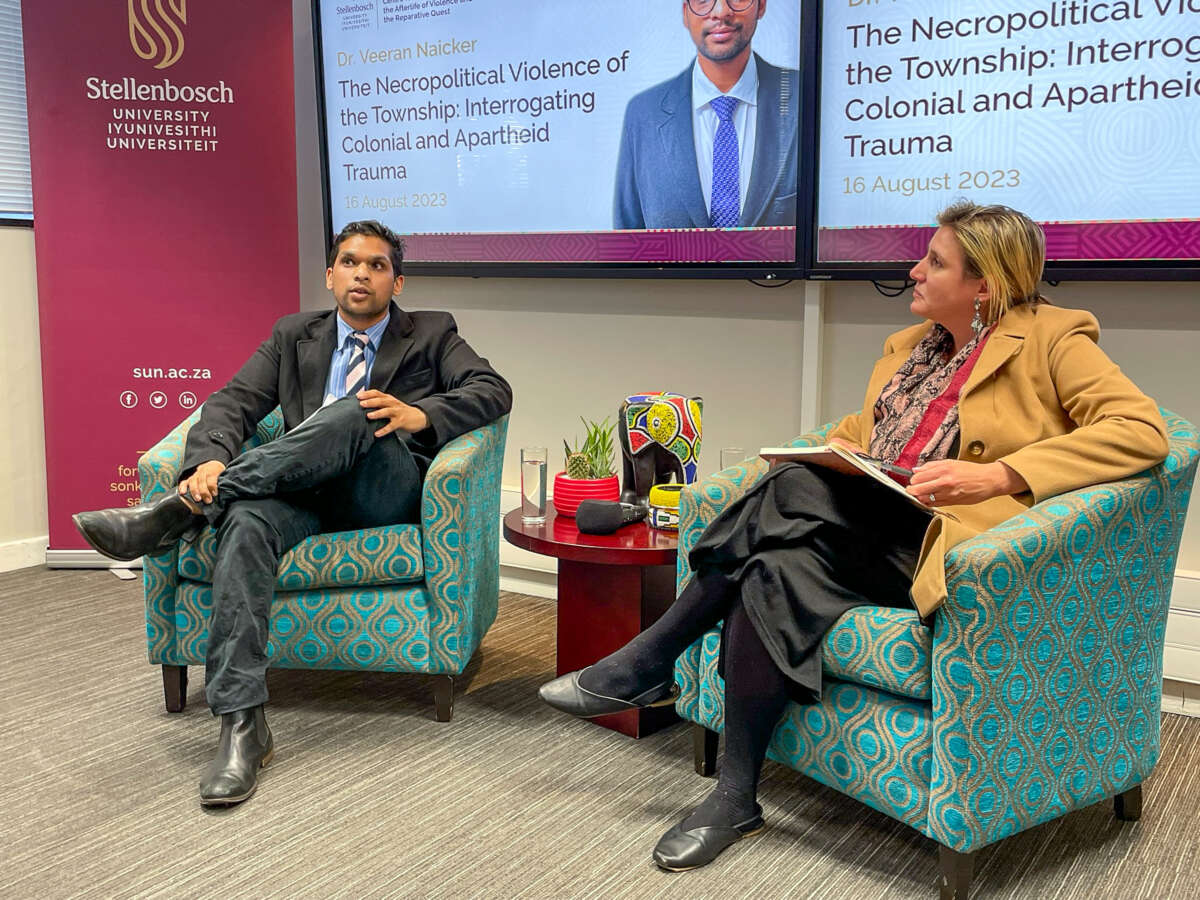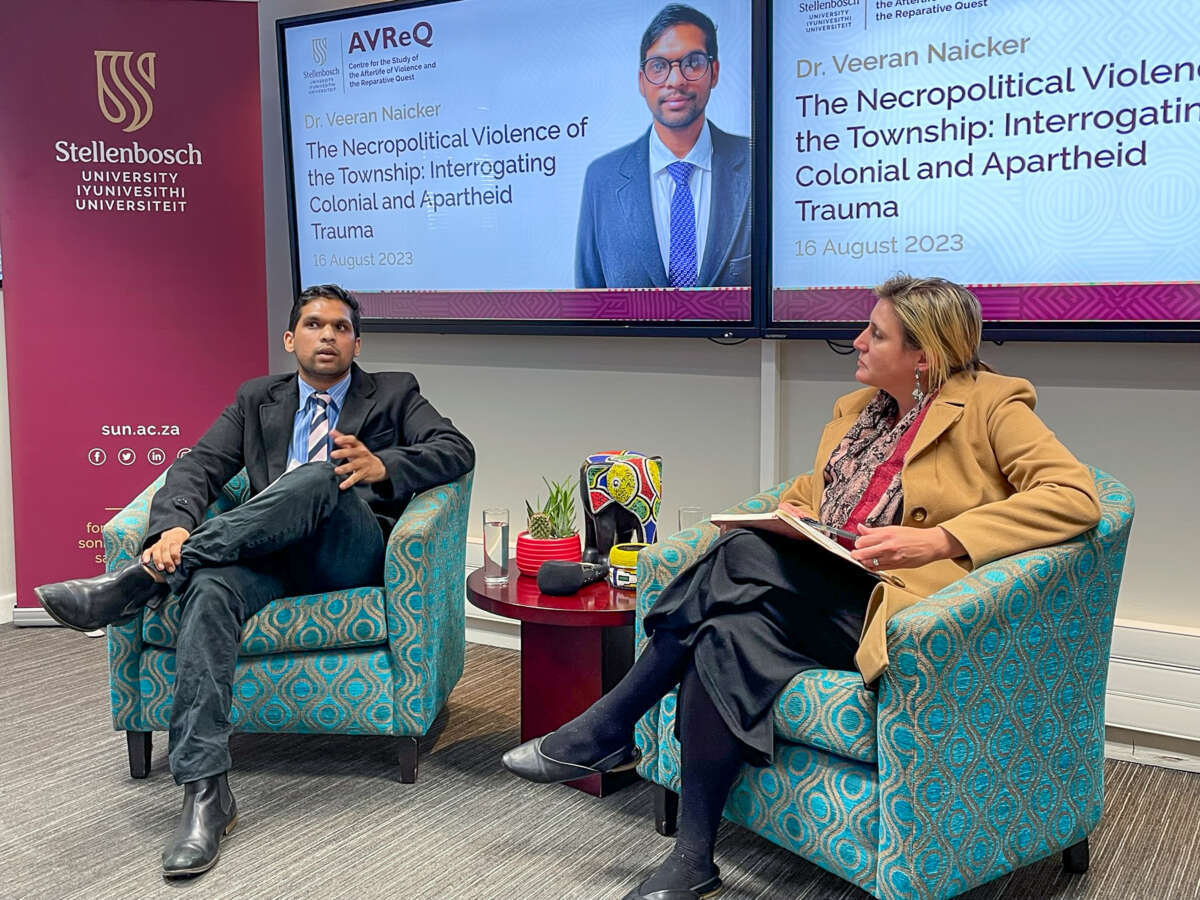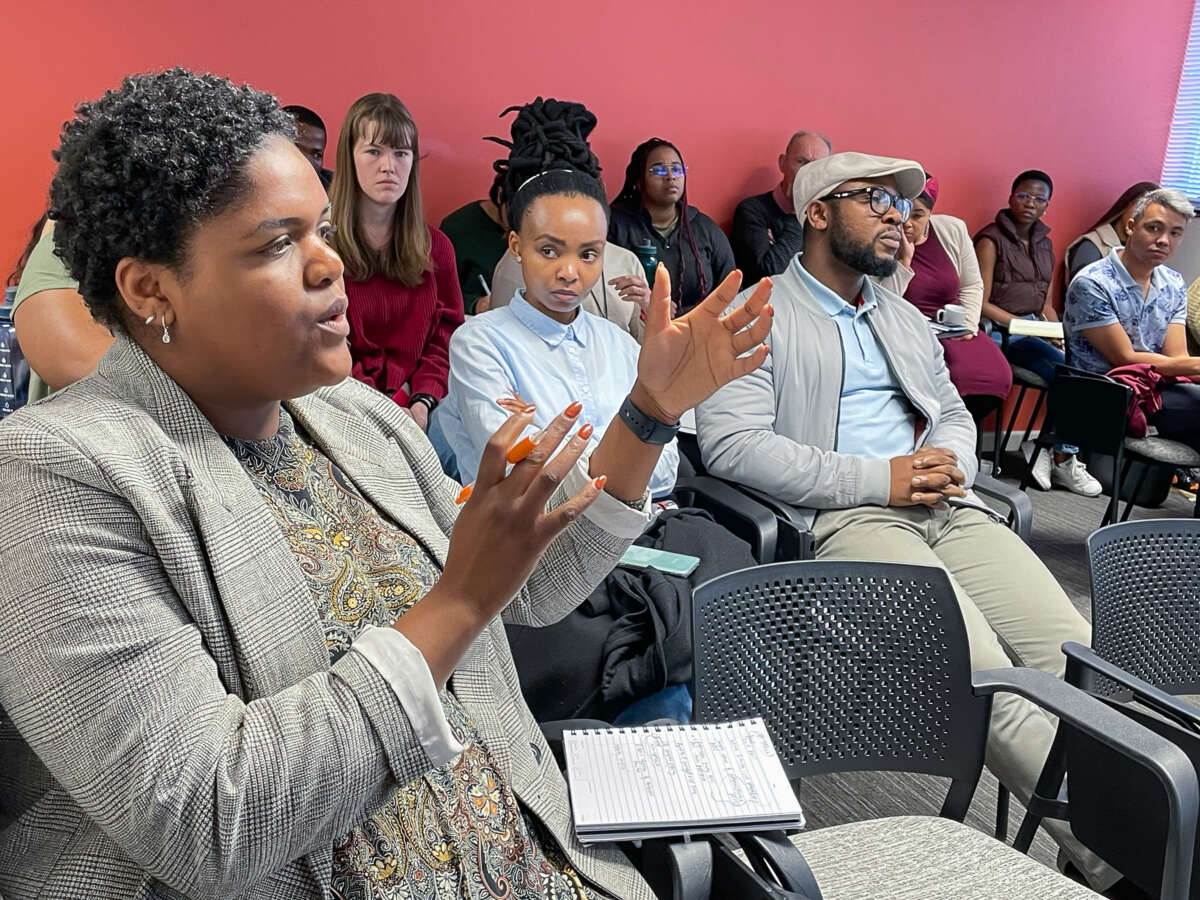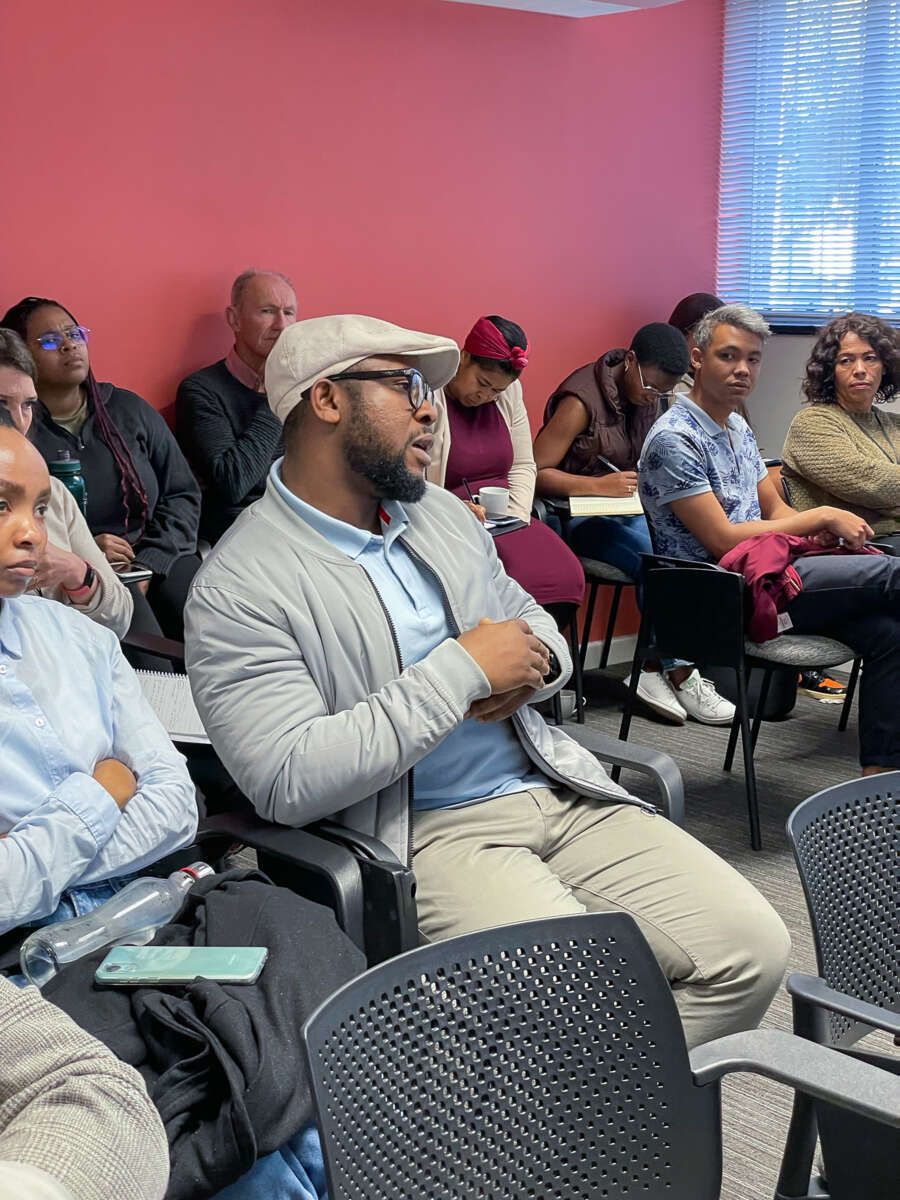Dr Veeran Naicker
This postdoc lecture details the progress, modifications, and problems in Dr Naicker’s research this year. It also signifies the opportunity to express a certain departure and rearticulation of the problematic of the township, while employing that particular rearticulation to draw attention to two interrelated problems in field of colonial studies: a) the loss and recovery of the racialised self in colonial and post-colonial society and b) the constitution of the black male in colonial discourse. Although these problems may appear somewhat unrelated, Dr Naicker endeavoured to indicate, through a necropolitical analysis of the colonial apparatus, the problem of alienation and nationalist liberation in favour of the racialised body. Dr Naicker’s lecture was divided into three sections 1) Colonisation as Ne-cropolitics: The problem of bare life, 2) The Colonial loss and recovery of self and, 3) The Male Black Body and the problem of Racism. This lecture also foregrounds the changes Dr Nacikers thinking on Necropolitics and the black body in the last six months-in order to challenge first order theories of African alienation with a nuanced historicization of the racialised trauma of a particu-lar lived experience (erlebnis) that, according to Sara Ahmed, is subjective product of power knowledge relations, fantasy and discursive representation.
Dr Naicker began by referencing J.M. Coetzee’s 1991 essay, “The Mind of Apartheid,” in which Coetzee criticized prevailing historical approaches to apartheid as limited by structuralist and Marxist paradigms. Coetzee’s analysis emphasized the importance of considering racialization as an autonomous process, leading to questions about the historical function of racism in South African society and elsewhere. To answer these questions, Naicker introduced the concept of “necropolitics” as articulated by Achille Mbembe, drawing on Michel Foucault’s work. Necropolitics involves dividing people into those who must live and those who must die, essentially defining power through control of the biological field. This control relies on racial divisions, a concept Foucault refers to as racism. Racism, in this context, becomes a technology that allows the state to regulate life and death, reinforcing the power of the sovereign. Naicker argued that South African biopower prioritized the lives of settler populations while actively seeking to abandon, destroy, and harm colonized communities. He linked this perspective to Patrick Wolfe’s concept of settler colonialism as a strategy of elimination, where the ultimate goal is to secure territory through various means, including structural genocide. This concept of elimination goes beyond mere extermination and includes the absorption of indigenous elements into settler society.
In the South African context, the need for cheap black labour drove the colonial state to find alternative solutions for the indigenous population, leading to the ethnic cleansing of African communities through land legislation. The Natives Land Act of 1913 allocated 87 percent of land to whites and 13 percent to tribal homelands, resembling the American reservation system. The lecture also delved into the migrant labour system, a necropolitical rationality aimed at controlling and transferring labour between rural reserves and urban townships. This system had two major consequences: reducing the colonized to “bare life” and transforming the colony into an exception to traditional juridical norms. Furthermore, Naicker discussed Giorgio Agamben’s concepts of “bare life” and “Homo Sacer,” explaining how they relate to South African colonial history. In Agamben’s framework, “bare life” signifies existence, while “bios” represents collective and qualified political life. The lecture highlighted how colonial law excluded colonized individuals from democratic rights and treated them as objects of sovereign violence. So too it challenged the notion of human rights in a context where individuals could be reduced to mere existence, facing the constant threat of violence and exclusion.
Furthermore, Dr Naicker also addressed the psychological impact of colonialism and apartheid on black individuals, particularly black males. The concept of an “inferiority complex” and the emasculation of black men were explored, shedding light on the trauma and structural violence experienced by colonized populations. Stereotypes were discussed as points of interpellation and subjectification in colonial discourse. They were shown to play a significant role in producing the type of subjectivity that served the racial logic of colonialism. Dr. Naicker emphasized the gendered aspect of the inferiority complex, particularly the emasculation of black males. He highlighted how this aspect has been understudied in the context of Fanonian studies. The lecture concluded by reflecting on the contemporary relevance of these historical issues, especially considering recent protests and social movements like “Rhodes Must Fall.” It raised questions about how liberation from emasculation and structural trauma might look in the present day.





